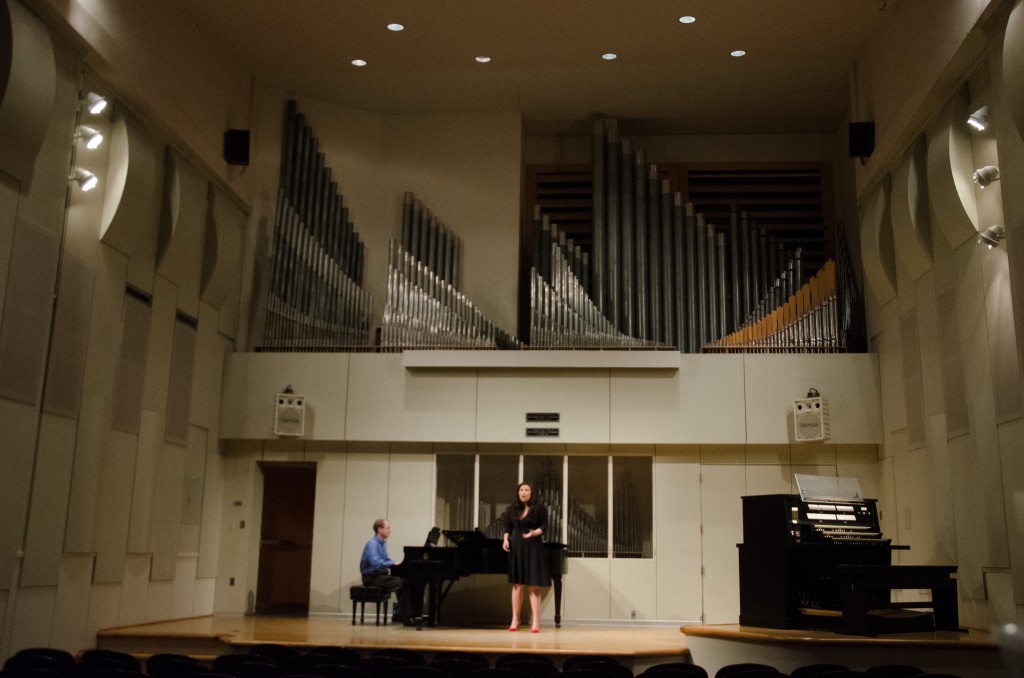Cincinnati auditions came and went, in a whirlwind 2.5 days. Our 5:30am departure for the airport on Saturday morning (following this absolutely beautiful Friday night concert that Lee Anne booked) turned into the beginning of a road trip, as our flight into CVG was cancelled, and no others were available to get us into town before auditions began. 8 hours and 500 miles later, we were seated in Watson Hall at CCM (below), getting our daily RDA of opera arias.

2014 Studio Artist Nicolette Book in audition at University of Cincinnati College-Conservatory of Music’s Watson Hall
After a full Sunday and a partial Monday, I write this at the airport, trying to get on an earlier flight to Chicago (with hopes of avoiding the delays and cancellations that are mounting with the advancing line of thunderstorms!)
Two things are on my mind as we close this Cincinnati chapter and head to Chicago.
First: Audition hall acoustics.
In recent years, we have bounced back and forth between two very different locations at CCM. Werner Recital Hall is beautiful in all ways. Visually appealing and spacious, and acoustically flattering. The result is that singers usually feel pretty comfortable and are able to turn in strong auditions, but we are always left with a bit of suspicion as to whether the truly beautiful things we hear are inherent in the voices or are partially manufactured by the hall itself. Results in a lot of internal debate, and a tendency to discount assets that may have nothing to do with the space.
The other space we’ve used recently is the black box space, the Cohen Family Studio. It is one of those halls that singers fear. Honest, dry and naked. Singers often don’t trust their instincts and start pushing for more sound. And we have to work pretty hard to extrapolate what the voices will sound like in a more generous environment. But the good thing is that I always find myself in a state of mental addition; as in, if someone actually sounds good in here, just imagine what she’ll sound like elsewhere!
So imagine our pleasure when we tried out a new hall this year (Watson, above), and it seemed to be a lovely compromise between these two extremes! We spent our two full audition days in Watson, and it was lovely. (I wanted to bust a move and try out the Bach d minor on the pipe organ, but I restrained myself.)
Wouldn’t it be lovely if each audition space came with an acoustical diagnosis? To let us know which overtones and partials are amplified and which are suppressed, which frequencies are boosted, how the bounce affects diction, and which voice types are favored. (Every hall has voice types that it loves and hates, no matter what they tell you:))
What’s the second topic? We’ve been having an animated discussion (in person and on social media) about which audition arias are so problematic for pianists that singers should offer them only at their own risk (or hire and bring their own pianist.) It’ll take another day or so for me to organize the responses I’ve gotten. It’s been fascinating so far… much less clear than I had anticipated! If you are a singer/pianist/teacher who would like to weigh in on this question, head on over to our Facebook page and tell us what you think!
Add Comment